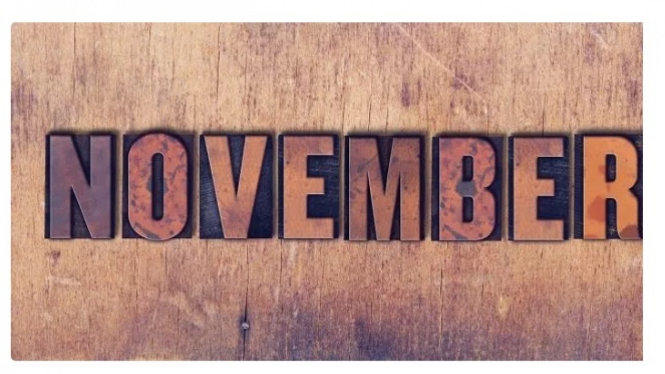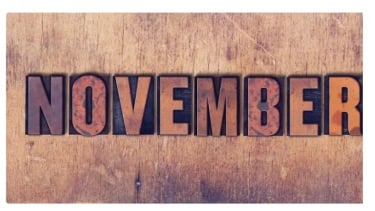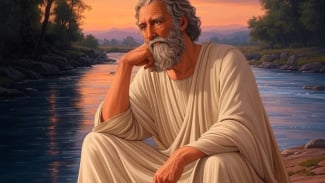Fun Facts about the Month of November, Many Historic Things
VIVA – November is the eleventh month in the Gregorian calendar. The weather in November is also starting to be more intense than in previous months. November has many historic things as follows.
The name November remained unchanged from the ancient Roman calendar until 45 BC. The first Roman calendar consisted of only ten months, with November being the ninth month.
November translates correctly to "ninth month" in Latin. When the Julian calendar was adopted in 45 BC, two new months were added, pushing November back to the 9th. Despite the change in position, November was never renamed.
On November 19, 1978, the largest group suicide in history occurred in Jonestown, Guyana. The group that took their lives was so instructed by the Reverend Jim Jones, who led a suicidal cult called the "People's Temple".
More than 900 cult members drink drinks containing cyanide, with those who refuse to be forced to drink them. November is the last of the four months that have 30 days. The other months are September, April, and June.
Then, on November 22, 1963, in the United States was the day President John F Kennedy was shot dead while driving his wife in a car. He was rushed to the hospital late and was pronounced dead that day. Kennedy was the fourth US president to be assassinated, after Abraham Lincoln, James Garfield, and William McKinley.
The Anglo-Saxons have quite a name for November. Usually, at this time of year in the Northern Hemisphere, cold winds start to chill you, and because of that, they call it the "Wind Monath", or wind moon.
The Anglo-Saxons also call November the "Blod Monath" or blood month. It got this name because in November they traditionally slaughter cows to provide food during the long winter months.
Meanwhile, in England, on November 5, 1605, a group of Roman Catholics planned to blow up the English Parliament while King James I was inside. Fortunately, the plot was foiled.
November
Every year celebrations are held across the country to celebrate the group's failures, which include setting off countless fireworks, lighting bonfires, and even burning a statue of Guy Fawkes, one of the conspirators.
After that, Thanksgiving in the United States was first celebrated in November 1621. The first Thanksgiving was a feast celebrating the first bountiful harvest of the pilgrims of Plymouth and New England. It is still celebrated in the same way, with families gathering and sharing the many foods that are traditionally available during November.
November has only one birthstone, luminous topaz. Topaz is a symbol of many things, but most importantly a symbol of power and honor. The ancient Greeks also believed that the stone could make itself invisible.
Then, November 3, 1957, was a historic day for Soviet Russia and the world. On this day, the first spacecraft carrying live passengers was successfully launched into space. The passenger was a stray dog ??found on the streets of Moscow.
The Soviets used stray dogs in their tests because they assumed they would get used to the hunger and cold that they would inevitably experience in space.
It is known that the beginning of the end of the War of Independence began on November 30, 1782, when a provisional treaty was signed between the newly formed United States of America and the United Kingdom of Great Britain. The final treaty was not finalized and signed until almost a year later in Paris on September 3, 1783.
On November 19, 1863, President Abraham Lincoln delivered the Gettysburg Address at the dedication of the National Cemetery at the site of the Battle of Gettysburg. While Lincoln's speech was only two minutes long, it summed up everything important about democracy.
Turns out, William Shakespeare didn't really like November. In all the works written by Shakespeare, the month of November never mentioned.






























